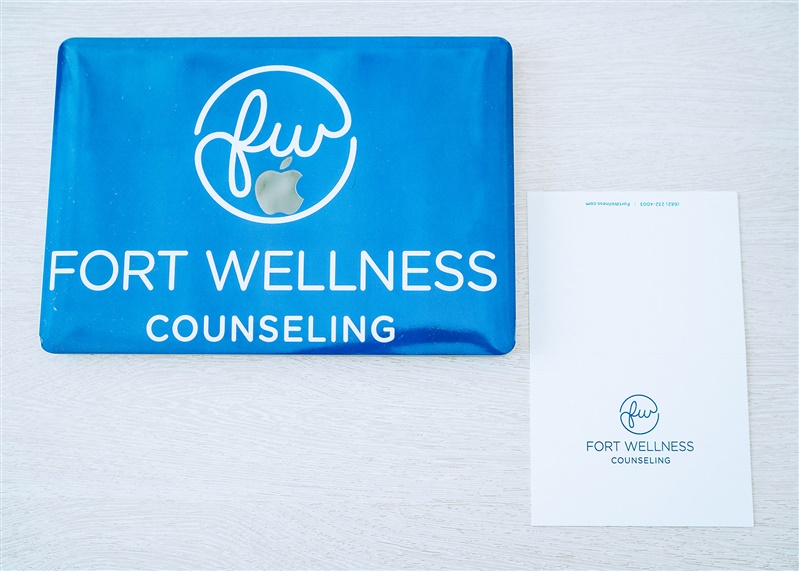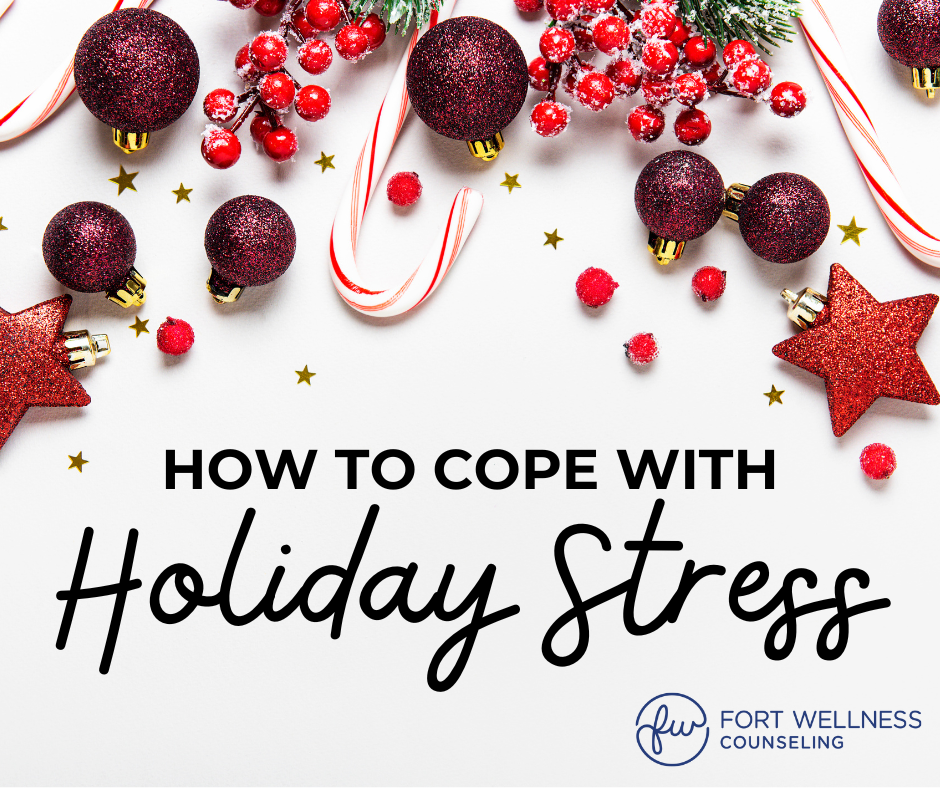
Offering Support After the Texas Hill Country Flooding
Offering Support After the Texas Hill Country Flooding By: Rane Wallace, MS, LPC, LCDC, SAP When tragedy strikes, it comes out of nowhere. And it

If you have never attended a counseling session with a therapist before, you might be curious about what to expect. It is totally normal to be nervous about your first counseling session. I went through therapy myself, so I know what it’s like to be sitting in your chair. Below I will discuss what you should expect in therapy so you can take the fear of the unknown out of the equation.
After getting scheduled for an appointment with me at Fort Wellness Counseling, you will receive an emailed appointment reminder about your first therapy session of therapy. On the day of the appointment, I will send you a text message reminder about the appointment with the address. Feel free to respond that you will make it or if you have any questions, as this reminder will be coming directly from me.
You can map out the drive ahead of time, so you are not having to do this last minute. Not doing so might make it nerve wrecking. You can also see where we are located.
Upon arrival, you can walk into the main lobby area which is located on the 1st floor. From there, you can let the R+R team know which provider you are there to see and what time your appointment is at. You will be provided some intake paperwork that you can fill out while you have a seat in the waiting room. The initial paperwork which includes two important forms: 1.) The Main Intake Form (which is a typical intake form that you would expect to see in a medical provider’s office), and 2.) The Orientation and Informed Consent Form. The Orientation and Informed Consent Form outlines information such as confidentiality, the cost of therapy, the cancellation policy, and the risk in attending therapy, etc.
Your counselor will meet you at the lobby and introduce themselves, and take you up to our 2nd floor office spaces.
Next, after finishing the intake paperwork, you and your provider will head to the designated office space for your appointment. We will spend the first 5 to 10 minutes reviewing the paperwork, what to expect in therapy, how confidentiality applies to therapy, our cancellation policy, and other important items on the Orientation & Informed Consent Form.
After reviewing this information, you will then be able to get started with the counseling process.
The first question I like to start sessions with is something along the lines of, “what brings you in here today” or, “where do you want to start?” This is usually the part where you will explain the presenting reasons for attending therapy. I will ask you a lot of follow-up questions to get a good understanding of the problem.
Throughout the first session, I will inquire about your hopes and goals for therapy. I will ask you to help define some of the specific changes that you want to see in yourself that will indicate to you that you are getting the results you want. I will ask if you have been to therapy before or not and other types of background questions that will help me get a good understanding of your past. Every client is unique, and every situation is different. So, while this article is a general guide for what you should expect in therapy, your treatment at Fort Wellness Counseling is individualized and your first counseling session will be too.
I will discuss the counseling process and inquire about how frequently you are hoping to attend. While I will tell you my professional recommendation for how often I think would be appropriate for you to attend therapy, the frequency of therapy will be determined on the severity of the problem and how often you want to come in. This is a decision that we will discuss together, but that choice is yours to make. Counseling will usually start off at once per week or every other week (although for some it is monthly), and then as therapy progresses scale that back when it is appropriate.
Toward the end of the first session, I will ask you if you found the session to be helpful. A common question would be, “What, if anything, was helpful about this session today?” At the end of the session, I will wrap up and then get your next session scheduled if you want to proceed, and lastly, take payment. Please see the FAQ page, Services page and the Schedule for our prices listed so there are no surprises when you show up. Therapy is an investment in yourself that you deserve to treat yourself to.
After you leave the first session, it is helpful to check in with yourself about how you thought the session went. Was it comfortable? Was it helpful? Is there any information you withheld, and why? Do you think that you “clicked” well with me and that I understood you? Keep in mind that your desired results will not come after just one session.
However, you should have a good idea of whether you think you will enjoy working with me or not. According to research, one of the most important factors on therapeutic outcomes is what is referred to as the therapeutic alliance. In short, the therapeutic alliance is how well you and your therapist connect, behave, and engage with each other. If you do not think I was a good fit because you had a difficult time connecting with me, don’t worry – there are several others in the area that do great work. What is important is that you find a therapist that will be helpful for you in order for you to accomplish what you want to achieve while attending therapy.
If you are interested in seeing if Fort Wellness Counseling in Fort Worth will be a good fit for what you are hoping to accomplish in therapy, you can email me at ranewallace@fortwellness.com, use the Contact Form, or call or text me at 682-232-4003. If you call and I don’t answer immediately, just leave a voicemail and I will return your call as soon as possible. Please note, that I will not answer the phone call during the middle of a counseling session, but rest assured, I will provide you with that same respect. You can schedule an appointment by visiting our online booking page.
This is Part 3 of a 3 part series to help guide you so that you can learn more helpful information about the counseling process. In Part One, I discussed What is Counseling, Mental Health Therapy, Psychotherapy and Talk Therapy? In Part Two, I discussed The Benefits of Attending Therapy with a Counselor and Therapist. This final Part was about What To Expect At Your First Therapy Session at Fort Wellness Counseling in Fort Worth, TX.

Offering Support After the Texas Hill Country Flooding By: Rane Wallace, MS, LPC, LCDC, SAP When tragedy strikes, it comes out of nowhere. And it

Family Vacations & Your Mental Peace: Strategies for Stress-Free Summer Travel By: Rane Wallace, MS, LPC, LCDC, SAP Of course, traveling with your family is

Mental Health 101: Debunking Common Myths By: Rane Wallace, MS, LPC, LCDC, SAP Every May, Mental Health Awareness Month raises awareness and advocacy for people

Medical Trauma: Understanding and Healing from Difficult Healthcare Experiences By: Rane Wallace, MS, LPC, LCDC, SAP Over the years, I’ve come to understand that for

Social Media Depression: Beyond FOMO to Algorithm-Induced Mood Change By: Rane Wallace, MS, LPC, LCDC, SAP I’ve seen this happen so many times with patients,

How to Wind Down at Night: Simple Sleep Hygiene Tips By: Rane Wallace, MS, LPC, LCDC, SAP Sleep hygiene might sound like a fancy term,

Pregnancy and Postpartum Anxiety Treatment in Fort Worth By: Rane Wallace, MS, LPC, LCDC, SAP Have you or a loved one experienced anxiety during pregnancy

Breaking the ‘New Year, New Me’ Mindset: A Guide to Sustainable Change By: Rane Wallace, MS, LPC, LCDC, SAP In my years as a therapist,

How to Support a Partner with Chronic Illness: A Mental Health Perspective By: Rane Wallace, MS, LPC, LCDC, SAP Living with a chronic illness can

EMDR for Attachment Issues: Building Healthy Relationships By: Rane Wallace, MS, LPC, LCDC, SAP When you hear “EMDR therapy” (Eye Movement Desensitization and Reprocessing), you

How to Deal with a Narcissistic Partner By: Rane Wallace, MS, LPC, LCDC, SAP Do you ever feel like your partner thinks they’re better than

How to Recover from Burnout By: Rane Wallace, MS, LPC, LCDC, SAP Burnout is a common struggle in today’s fast-paced world. Life’s relentless demands can

The Benefits of Attending Couples Counseling By: Rane Wallace, MS, LPC, LCDC, SAP There’s a misconception about couples counseling – that it signals the end

Things to Know About Individual Counseling in Fort Worth, TX By: Rane Wallace, MS, LPC, LCDC, SAP May is Mental Health Awareness Month, a good

Everything You Need to Know About EMDR Therapy By: Rane Wallace, MS, LPC, LCDC, SAP Have you heard about EMDR therapy and want to learn

What is Nature Therapy? (And Why You Should Be Doing It!) By: Rane Wallace, MS, LPC, LCDC, SAP Let’s face it: there’s just something about

The Benefits of Virtual Therapy in Texas By: Rane Wallace, MS, LPC, LCDC, SAP Technology is changing everything, and healthcare is no different! Thanks to

How to Get Over a Breakup By: Rane Wallace, MS, LPC, LCDC, SAP Breaking up with a romantic partner is painful – no matter the reason

How to Set New Year’s Resolutions By: Rane Wallace, MS, LPC, LCDC, SAP How to Set New Year’s Resolutions Setting goals gives us a sense

How to Cope with Holiday Stress By: Rane Wallace, MS, LPC, LCDC, SAP Say No to Prevent Burnout There are an abundance of obligations that

Trauma Therapy in Fort Worth: Types, Benefits & More By: Rane Wallace, MS, LPC, LCDC, SAP Believe it or not, an estimated 60% of men

How to Communicate Better in Relationships By: Rane Wallace, MS, LPC, LCDC, SAP Whether with coworkers or your significant other, the ability to communicate effectively

How to Prevent Seasonal Affective Disorder (SAD) By: Rane Wallace, MS, LPC, LCDC, SAP If you’re struggling with winter blues, know you’re not alone. SAD

What is a Functioning Alcoholic? By: Rane Wallace, MS, LPC, LCDC, SAP When someone is deemed a ‘high-functioning alcoholic,’ they’re able to carry out daily

How to Help Yourself – And Others – with Suicidal Ideation By: Rane Wallace, MS, LPC, LCDC, SAP September is Suicide Awareness Month. And while

32 Questions to Strengthen Your Relationship By: Rane Wallace, MS, LPC, LCDC, SAP When was the last time you had a meaningful conversation with your

The Fawn Response: How Trauma Can Lead to People Pleasing By: Rane Wallace, MS, LPC, LCDC, SAP Do you often find yourself putting the needs

How to Overcome ‘Hangxiety’ (Post-Drinking Anxiety) By: Rane Wallace, MS, LPC, LCDC, SAP Thought the consequences of drinking heavily were merely physical? Unfortunately, you’ll have

What is Box Breathing? Plus Tips for Beginners By: Rane Wallace, MS, LPC, LCDC, SAP Ever heard of box breathing? This popular relaxation technique involves

Do Mindfulness Exercises for Anxiety Work? By: Rane Wallace, MS, LPC, LCDC, SAP Do mindfulness exercises for anxiety work? If you (or people in your

What is Trauma Bonding? 4 Warning Signs By: Rane Wallace, MS, LPC, LCDC, SAP If you’ve ever been in an abusive relationship and felt bonded

Why Do We Cry? 4 Reasons and Crying Benefits By: Rane Wallace, MS, LPC, LCDC, SAP There’s no getting around it – crying is part

What Is Habit Stacking? (And How to Do It) By: Rane Wallace, MS, LPC, LCDC, SAP Supporting our mental health is one of those goals

5 Tips for Living with Someone with OCD By: Rane Wallace, MS, LPC, LCDC, SAP While living with OCD (obsessive-compulsive disorder) can be demanding, living

What is Assertive Communication? By: Rane Wallace, MS, LPC, LCDC, SAP So, what is assertive communication? Well, in a nutshell, this communication style aims to

PTSD Counseling in Fort Worth: Proven Coping Strategies By: Rane Wallace, MS, LPC, LCDC, SAP For those who didn’t already know, post-traumatic stress disorder (PTSD)

Brainspotting vs. EMDR: What’s the Difference? By: Rane Wallace, MS, LPC, LCDC, SAP According to the National Council for Mental Wellbeing, 70% of American adults

Mindfulness Exercises to Strengthen Your Recovery By: Rane Wallace, MS, LPC, LCDC, SAP Are you recovering from alcohol and/or substance abuse? Self-improvement is a life-long

How to Find a Counselor in Fort Worth By: Rane Wallace, MS, LPC, LCDC, SAP Are you considering therapy? If so, finding a counselor in

How To Not Be Codependent In A Relationship By: Rane Wallace, MS, LPC, LCDC, SAP Wondering how to not be codependent in a relationship? Sometimes

What is Parental Anxiety? Coping Tips from a Therapist By: Rane Wallace, MS, LPC, LCDC, SAP Every parent wants to shield their child from danger

What is EMDR Therapy? By: Rane Wallace, MS, LPC, LCDC, SAP Ever heard of eye movement desensitization and reprocessing therapy? More commonly known as EMDR,

8 Proven Tips to Sleep Better at Night (and Improve Your Mental Health) By: Rane Wallace, MS, LPC, LCDC, SAP Struggling with restless nights and

How to Have a Healthy Relationship with Social Media By: Rane Wallace, MS, LPC, LCDC, SAP In today’s world, there’s no escaping the presence of

What Is The Goal of Psychotherapy? By: Rane Wallace, MS, LPC, LCDC, SAP Have you been considering psychotherapy? The start of a new year is